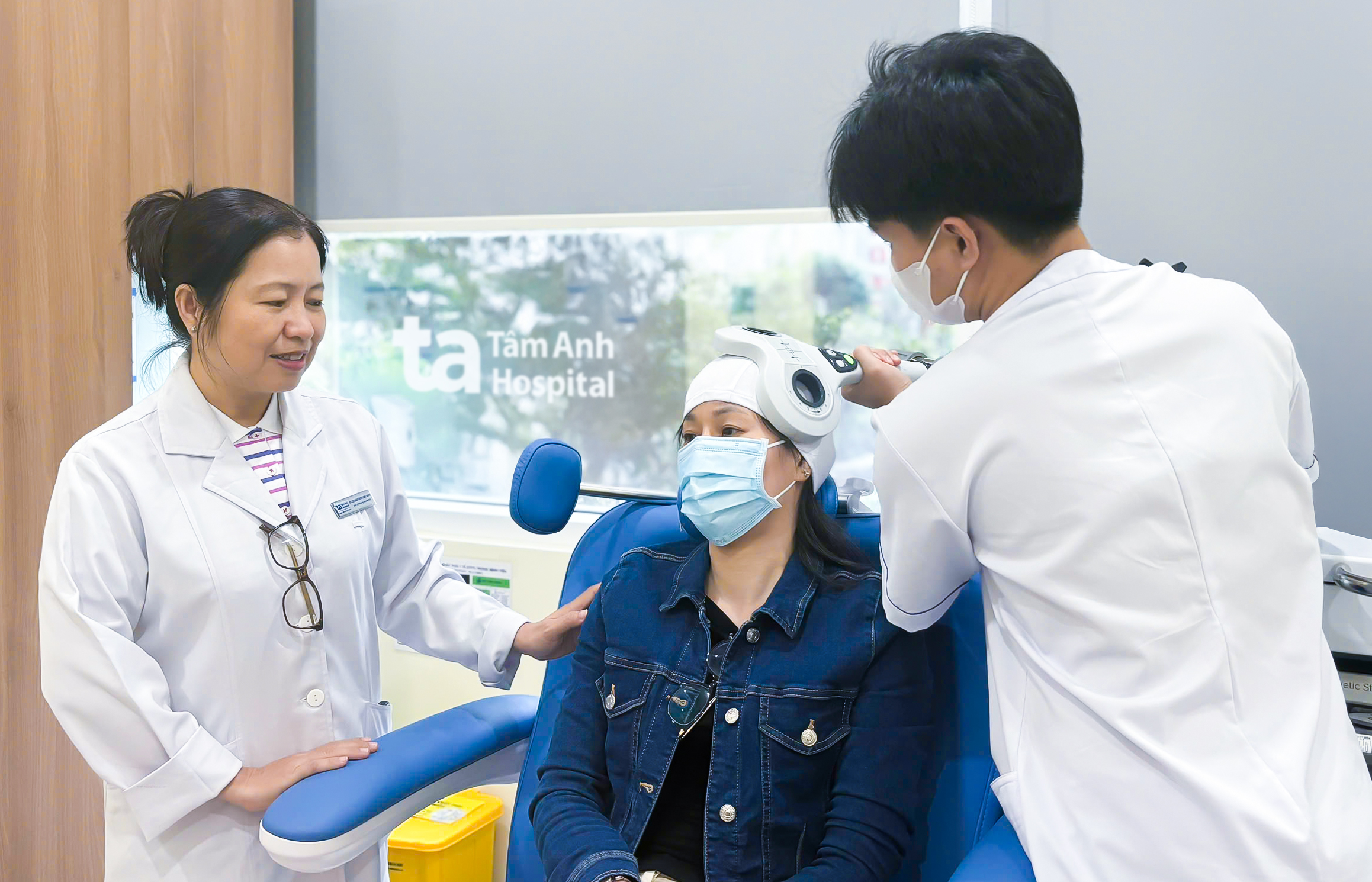Headaches and nausea are common symptoms of central nervous system dysfunction or insufficient blood supply to the brain. Dr. Nguyen Huu Khanh from the Neuroscience Center at Tam Anh General Hospital in Ho Chi Minh City explains that various factors can cause these symptoms, including dehydration, orthostatic hypotension, vestibular disorders, stress, inner ear infections, cerebrovascular damage, or even early signs of stroke or brain tumors.
Patients may experience dizziness when changing positions, accompanied by nausea, blurred vision, headaches, tinnitus, and loss of balance. If these symptoms occur suddenly and intensely, along with slurred speech, unilateral weakness, double vision, or high fever, immediate medical attention is crucial.
For milder cases without localized neurological signs, Dr. Khanh recommends several ways to alleviate pain and nausea.
Rest in a well-ventilated area. A quiet environment helps the nervous system relax and stabilize. Some people find relief by soaking their feet in warm water, listening to soft music, or practicing deep breathing. Avoid strong smells like perfume, incense smoke, or cleaning agents, as these can prolong headaches.
Stay hydrated. Dehydration hinders blood flow to the brain, increasing the risk of headaches. Adults should drink about two liters of water daily, supplemented with fruit juice, ginger tea, or warm lemon water to aid recovery.
 |
Transcranial magnetic stimulation treats migraines. Photo: Tam Anh General Hospital |
Transcranial magnetic stimulation treats migraines. Photo: Tam Anh General Hospital
Apply a cold compress. According to Dr. Khanh, applying a cold compress to the forehead can quickly soothe dull headaches due to its localized numbing effect. Conversely, for pain extending to the neck and shoulders accompanied by muscle stiffness, a warm compress can help relax muscles and reduce tension in the head and neck area.
Maintain a balanced diet and nourish your nervous system. Dr. Khanh recommends consuming foods rich in omega-3s, B vitamins, and natural compounds found in blueberries and ginkgo biloba. These nutrients combat free radicals, improve nerve conduction, and boost brain cell energy, thereby alleviating headaches. Limit caffeine, alcohol, carbonated drinks, and stimulants, as these can worsen symptoms.
Adopt a healthy lifestyle and get enough sleep. Aim for 7-8 hours of sleep each night to allow the brain to recover and regenerate. Regular exercise, a consistent sleep schedule, and avoiding overwork can also help prevent symptom recurrence.
Dr. Khanh advises anyone experiencing persistent or worsening headaches and nausea, especially with unusual accompanying symptoms, to seek medical attention promptly. Depending on the specific situation, doctors may recommend imaging tests such as MRI, CT scans, EEGs, or Doppler ultrasound to detect cerebrovascular damage, tumors, or nerve conduction disorders for appropriate treatment.
For chronic migraines or neurological disorders, transcranial magnetic stimulation (TMS) may be an option. TMS uses magnetic fields to regulate brain activity in pain-related areas, effectively reducing headache pain.
Phuong Thy
| Readers can submit questions about neurological conditions here for expert answers. |












